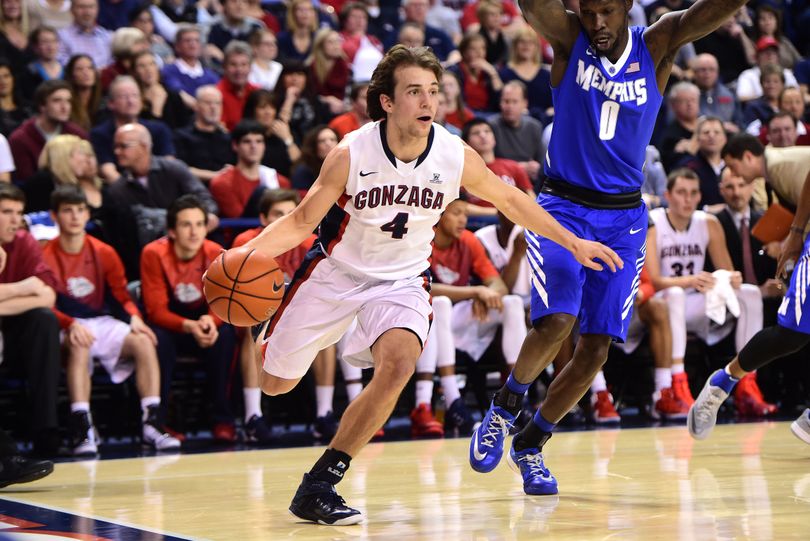There’s a simple solution to college basketball’s problems

A GRIP ON SPORTS • As we prepare for the final college basketball games of the season tonight and tomorrow, the calls for changes in the game have been muted. The tournament's excitement will do that. But the outcry will return. And we must not heed it. There is a simpler solution. Read on.
••••••••••

• There has been a lot of discussion this season on improving college basketball. The game has gotten too physical, the narrative goes, and changes have to be made. Attendance is down, the regular season is hurting and the future looks bleak. A radical revamp is needed. Maybe a 30- or 24-second clock is the ticket. How about widening the lane? Limiting the number of timeouts. Rule changes are necessary, the chorus echoes, if college basketball is going to thrive again. Well, baloney. Yes, college basketball has gotten too physical. That's a trend that began in the early 1980s and hasn't been stopped. Delayed over the years, maybe, but not stopped. Yet radical change isn't needed, just a little fortitude is. In fact, radical change might just invoke the law of unintended consequences and thus make the game even more physical. Let's take the rule change that is most in vogue, shortening the 35-second clock. The NCAA allowed the postseason tournaments other than its own championships to use a shorter shot clock. The results will be pored over like the Manhattan Project during the offseason. Some overarching pronouncement will be forthcoming based on a way-too-small sample size, that's for sure. But let's get real. You shorten the shot clock in college to 30 seconds, or even to the NBA-length 24 seconds, and the game will become even more congested. Why? Because coaches will coach to it. Simple as that. More teams will follow the Pete Carril model and drop four or five players back in transition defense, striking another blow against fast-break basketball. And, more than likely, soft ¾ or full-court pressure will become the norm, eating into the time teams have to attack in the half-court. Add in the probability of more zone defenses – which take time to attack effectively – and though offensive possessions might rise, offensive efficiency probably will fall, meaning even more 55-50 games, not less. You want to get more offenses into the game? Fine. It's not that hard. Enforce the rules as they are written. Yep, nothing radical needs to be done, unless you consider backing the officials radical. It won't be easy, but it is necessary. Tell ESPN and your broadcast partners to earmark an extra 15 to 30 minutes to each game, because in 2015-16, games are going to take longer. There will be more fouls called. Empower your officials to call every touch, every impediment. Tell them to call over-the-back fouls again. To whistle the second player on the free-throw line when he or she pushes the first player toward the hoop with their legs. Call hand checks. The first one. Call arm bars. The first one. Call body bumps. The first one, the second one, every one. Tell coaches arguing a call next season will result in a quick technical – and back up the referees. Force, not just encourage, coaches to change how they coach defense. Bring feet back into the game, both offensively and defensively. Sure, the early games will be a cluster. A non-conference contest between Duke and Wisconsin might be decided by a walk-on – or a four-on-four final minute. Who cares? The goal is to improve the game. Coaches and players will adjust. And, just so the defenses have a chance, make one small rule change. Decree fouls will be called on whoever initiates the contact. A ball-handler is ridden by the defender? Defender's foul. The ball-handler veers into the defender? Ball-handler's foul. The idea is to limit contact, not to punish good defenders. Look, we are never going back to 1975 again. Coaches have too many tools at their disposal, not the least of which they all work full-time at the job these days. No one, except maybe Division III guys, still teach a kinesiology class anymore. They study the game. They try to find every advantage they can for their team. If that means pushing the tempo, they will do it. Look at the 3-point shot. The original idea was to clear the lane, bringing back the post player by giving him or her more room to move. That's not how it's worked. Teams use the 3-point shot in a myriad of different ways. Some spread the court with five players, including the so-called bigs, and make you guard in space. They shoot 20 or 30 a game. Others use it sparingly, a side dish if you will, not the entrée. But it's here to stay. There have been more consequences from that rule change than anyone could have imagined. The same thing will happen with any radical steps taken to "improve" college basketball in the offseason. Radical isn't needed. All that is needed is some fortitude. Empowerment. Backing. Let ... no, not let ... demand, officials become enforcers of the purity of the game. Have their backs. Don't back down. Reward the ones that do with plum assignments. Keep it up no matter the outcry. Make sure the NCAA tournament is called the same way next season. That's all it will take. One season, one championship, one vision. The key stakeholders, coaches, players and officials, will adjust. And the game will be better because of it.
•••
• WSU: The NCAA title game is tonight, pitting Wisconsin, upset winners over Kentucky, and Duke. Who you got?
• Gonzaga: Sorry, I didn't pass this along over the weekend and I should have. USD has a new coach. A USD man.
• Idaho: The Vandals received a commitment from a basketball player over the weekend. Sean Kramer has the details in this blog post.
• Golf: A local Spokane boy had a chance to do something I've always wanted to do: swing a club at Augusta National.
• Seahawks: Keith Price may just get another chance to make the Hawks.

• Mariners: Yes, it's opening day in Seattle. Felix Hernandez on the mound. Robinson Cano at second base. The stands full. Expectations high. Really high. Is this the year the disappointment is pushed aside and the M's win something? Or are we in line for another big letdown? ... One guy who has already exceeded expectations is Spokane's Tyler Olson, who will be in the bullpen this afternoon. ... What do the "experts" think? No matter what, the description of each participant in Ryan Divish's blog post yesterday is worth the time. ... For the M's to win this season they will need a little luck. ... Finally, I didn't listen to this fellow growing up, but I have a lot of friends who did.
• Sounders: Though the standings might not reflect it, this year's Sounders team is off to a better start than last year's. ... The West got a little wilder over the weekend, including a RSL win over San Jose.
•••
• It was raining outside when I got up. And it's snowed a bit since. Ah, the perfect excuse to sit and watch baseball all day. So as far as I'm concerned, rain, rain stay here right now. Until later ...
